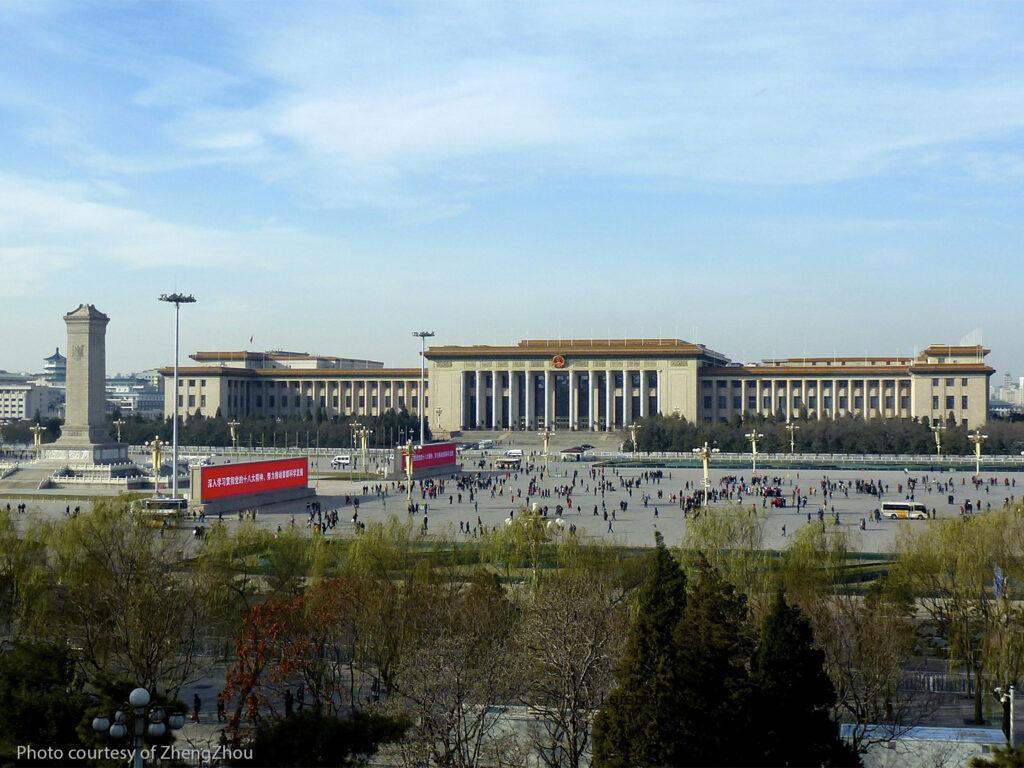The Georgetown Initiative for U.S.-China Dialogue on Global Issues hosted a discussion on China’s economic strategy and its implications for domestic politics.
David Steinberg, an associate professor of International Political Economy at Johns Hopkins University, spoke on his research about how China’s rising global economic influence impacts support for the Chinese Communist Party (CCP) in the country at the Oct. 21 event. Steinberg’s presentation focused on his team’s three-year-long experiment that surveyed the Chinese public in 2019, 2021 and 2022 to gauge the popularity of China’s major economic projects.
Though many studies have been conducted on China’s growing economy, Steinberg said a lack of existing literature on the political consequences of this development inspired his research.
“There has been extensive debate about how China’s rise in general, and its growing economic influence in particular, is reshaping world politics and economics,” Steinberg wrote to The Hoya. “We suspected that these developments also have important political impacts within China itself, and we wanted to see if that was the case.”

Steinberg said nations hoping to accumulate greater political power often use economic success to gain legitimacy on the international stage.
“Rising powers have generally sought to expand their role in global economic governance, and of course, China is no exception to this,” Steinberg said at the event. “China has gone historically from being a recipient of foreign aid to a provider of foreign aid.”
The Belt and Road Initiative, a multibillion dollar investment by Chinese President Xi Jinping to connect Asia, Africa and Europe by land and sea routes, is one example of China’s attempt to secure economic dominance, according to Steinberg.
Steinberg also surveyed the Chinese population on the Asian Infrastructure Investment Bank (AIIB), a Beijing-based lending program that finances Asian infrastructure projects, and China’s foreign vaccine distribution efforts during the pandemic.
These displays of economic strength commonly correlate with increased trust in the government, according to Steinberg.
“There’s evidence suggesting that when the population is more optimistic about the economy, both in democracies and authoritarian regimes, this tends to boost support for the incumbent,” Steinberg said.
For his experiment, Steinberg created three separate versions of a survey assessing popular support of the CCP that depicted China’s economic expansion projects as either successful, unsuccessful or neutral.
Participants who received a survey mentioning the failures of these initiatives tended to rate their support for China’s global economic expansion 0.7 points lower than control respondents on a 10-point scale.
Steinberg said this change may seem negligible, but it actually holds significance considering that Chinese citizens have largely only been exposed to state-controlled media that paints the government and its investments in a positive light.
“They’re consuming national media, which, yes, there are some more critical portrayals of these programs in the Chinese media, but I bet you have 99 positive articles for every negative one,” Steinberg said. “There’s sort of an existing sense that these have been overwhelmingly successful programs.”
Steinberg said one explanation for his findings is that a strong economy fosters citizens’ pride in their national identity and thus bolsters public support for the government.
“People might think about a country’s global economic influence as telling you something about the status of the nation in world politics,” Steinberg said. “The people that identify with the Chinese nation as a relevant identity group see that the nation-state is playing a larger role and would view that as a sort of positive for status or self esteem.”
Steinberg said he is confident China’s ability to manipulate public support using economic strategy will influence their political choices moving forward.
“It sure seems like this will matter,” Steinberg wrote. “The initial signs seem to suggest that Chinese foreign policy will take on an even more assertive stance than beforehand.”




















